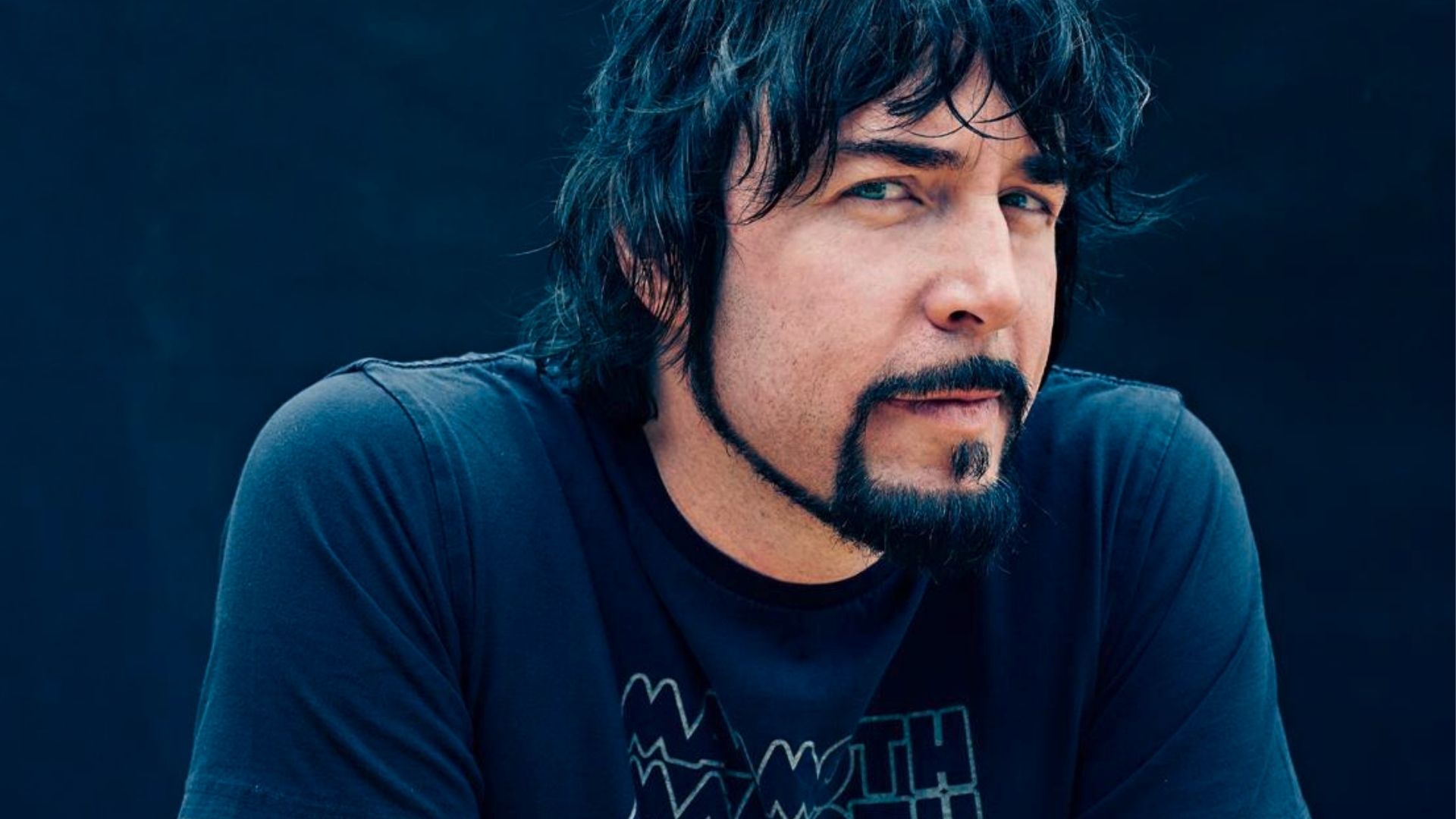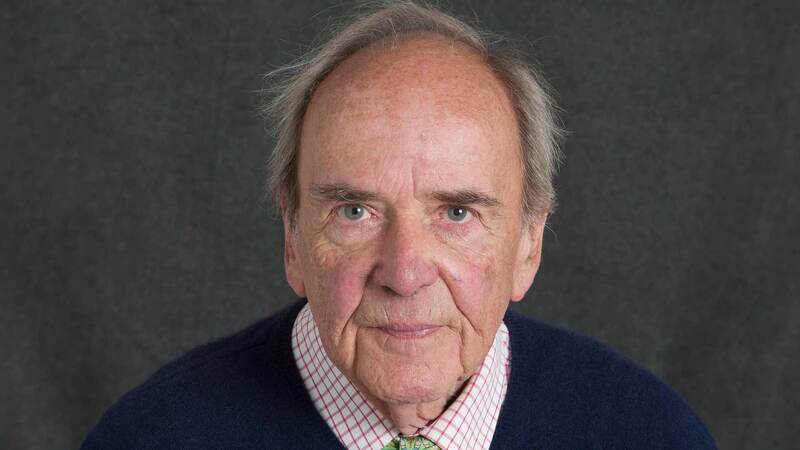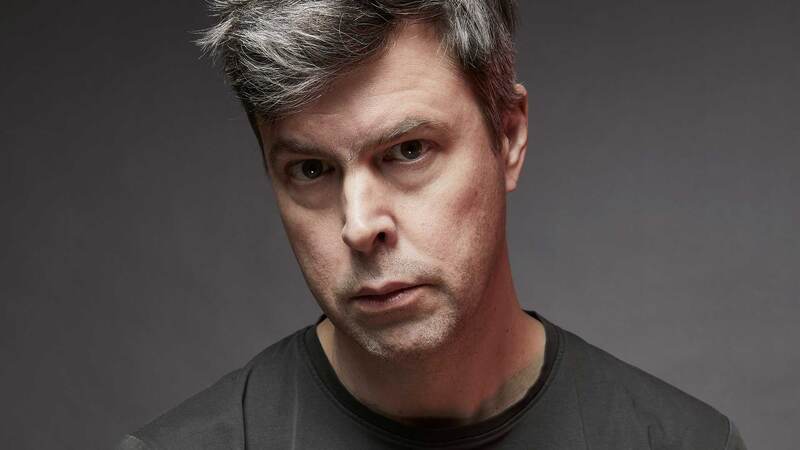You are viewing your 1 free article this month. Login to read more articles.
Jay Kristoff, bored vampires and the virtues of Dungeons and Dragons
Jay Kristoff talks about his bestselling fantasy title and British Book Award nominee Empire of the Vampire.
“Empire is a book that rides on the shoulders of a lot of amazing books that came before it. Interview [with the Vampire] was one, The Name of the Wind by Patrick Rothfuss was one, Salem’s Lot is another” said Jay Kristoff of his epic, gothic fantasy Empire of the Vampire, the bestselling fantasy title of 2021. We speak over Zoom to Kristoff’s house in Melbourne discussing inspiration, his writing process and the allure of vampires.
Empire of the Vampire follows the past and present life of legendary Silversaint Gabriel de Leon against the backdrop of “daysdeath” – the disappearance of the sun – and the rise of vampiric hoards. The Silversaints are bastions of faith, their disciples are half-vampire, half-human warriors known as “palebloods” who keep their preternatural side in check by smoking sanctus, a distillation of vampire blood. They deal out death, armed with the cursed gifts of their bloodline and protected by their holy tattoos which shine with the power of their faith – an addition borne from one of the first visual ideas Kristoff had for the book, envisaging a character fighting in a crypt with glowing tattoos.
That to me is the sign that the characters are real, when they’re exerting their own force on the narrative
Playing tabletop Dungeons & Dragons for 30 years has helped shape Kristoff’s ability to react to plot and characters: “That’s really where I learnt my chops running those kinds of games and telling stories for other people […] that’s a pretty great way to learn how to be creative and think on your feet, inevitably players will do something, and you need to improvise”.
This sentiment characterises Kristoff’s writing process where he tries to keep things “fluid so that the story can surprise me as well as the reader”. Planning, it turns out, is not all it’s cracked up to be, and Kristoff instead choses to surrender to the will of the story: “It sounds kind of metaphysical but it’s like the story knows where it wants to go, it has its own gravity, its own will and the characters, once they become fully realised in your head, you find them doing things you don’t expect either. That to me is the sign that the characters are real, when they’re exerting their own force on the narrative”.
Indeed, the forces of story and character came to bear on Kristoff when, staying in Prague for a book festival while promoting last instalment in his previous series the Nevernight Chronicles, he realised “something quite fundamental needed to change” with his draft of Empire of the Vampire. He was on his fourth draft, 180,000 words in. A few rewrites and an “uncomfortable” call to his agent later and Gabriel as the grumpy, drunk, prodigious half-vampire, half-human took shape.
Before Kristoff made Gabriel into a half-vampire, he was just a “regular guy”, an addict and a member of the Silversaints who, rather than the religious warriors, were “cannon fodder”. That this shift came about three or four iterations into the novel is testament to Kristoff’s willingness to listen to the will of his characters: “That was him exerting his own pressure on the manuscript – I knew what I wanted him to be, he knew what he wanted to be and I knew that we weren’t there yet but once that change took place, it was one shift that made the whole jigsaw puzzle click into place.”
I didn’t want you to feel like you had to draw a particular conclusion
Empire of the Vampire is a book that both explores faith and inspires it in its readership and fan base, some of whom tattoo iconography and quotations from Empire of the Vampire and the Nevernight Chronicles onto their bodies. He is incredibly humble when we talk about his devoted readership: “With the fan art and tattoos, I want them to know that I see it and appreciate it, I don’t take it for granted.” “It’s a cliché,” he continued, “but I couldn’t do this without them, it’s my way of saying thanks.”
While a tattooed sevenstar (the symbol of the religion in the novel) may not glow, it speaks to a dedication that characterises the author’s fan base and stands testament to Kristoff’s powerful visuals throughout the novel – one being the shining sevenstar held by the Silversaints and religious affiliates. Faith’s centrality in Empire of the Vampire should come as no surprise, after all there is verifiable proof of a higher power in the novel – holy symbols don’t shine for no reason – and yet, Kristoff wants to let the reader decide the precise nature of this power. “I didn’t want you to feel like you had to draw a particular conclusion,” he explains. This is a lesson Gabriel learns in the closing stages of the novel as he rediscovers faith, not in religion, but in people, specifically the incarnation of the Holy Grail, the character of Dior.
Dior is the “heart and soul of the story”, prophesised to bring about the end of daysdeath and the vampire reign. How? We aren’t sure. When? We’re even less sure. Readers are led to believe Gabriel has somehow lost the Grail, humanity’s last chance at salvation but – as with all Kristoff novels – I don’t think we are quite getting the full picture.
Kristoff chuckles when I relate my suspicion that Empire of the Vampire purposefully omits details – after all why would a captured legend tell the full truth of his life to his enemy? He shares his delight in creating unreliable narrators (“They’re a lot of fun to write!”) explaining that he enjoys the “grey areas” of morality, truth and falsehoods which push both reader and character to the edge of expectation.
Kristoff wanted to pay homage to the monstrous vampires of his youth, taking it back to “good, old-fashioned evil”. Vampires stand as one of the most malleable mythical creatures – combining violence, death, lust and beauty – but it is the inherent tragedy of their condition which attracted Kristoff. Unlike Anne Rice’s Interview and Stephenie Meyer’s Twilight series, Kristoff eliminates any choice in turning humans into vampires. In Empire of the Vampire, the condition is instead completely random with no certainty you can turn your partner into a vampire in an Edward and Bella-esque showdown: “There is something even more tragic about the idea you can’t choose, even if you find someone you love... There’s something awful in the tragedy of that idea that I really fell in love with”.
Extract
ASK ME NOT if God exists, but why he’s such a prick.
Even the greatest of fools can’t deny the existence of evil. We dwell in its shadow every day. Th e best of us rise above it, the worst of us swallow it whole, but we all of us wade hip-deep through it, every moment of our lives. Curses and blessings fall on the cruel and just alike. For every prayer heeded, ten thousand go unanswered. And saints suffer alongside the sinners, prey for monsters spat straight from the belly of hell.
But if there is a hell, mustn’t there also be a heaven? And if there is a heaven, then can’t we ask it why? Because if the Almighty is willing to put an end to all this wickedness, but somehow unable to do so, then he’s not as almighty as the priests would have you believe. If he’s both willing and able to put paid to it all, how can this evil exist in the first place? And if he’s neither willing nor able to lay it to rest, then he’s no god at all.
The only possibility remaining is that he can stop it. He simply chooses not to. The children snatched from parents’ arms. The endless plains of unmarked graves. The deathless Dead who hunt us in the light of a blackened sun.
We are prey now, mon ami.
We are food.
And he never lifted a fucking finger to stop it.
He could have.
He just didn’t.
Do you ever wonder what we did, to make him hate us so?
The next instalment in the trilogy will illuminate the workings of vampire society from two different points of view – not just Gabriel’s. Kristoff refuses to share the identity of the other narrator, try as I might to coax it out of him. With these two stories running in the present, the author hopes to amplify the uncertainties of truth by playing off the two accounts. “There is a plan – whether it comes off or not I don’t know,” says Kristoff. As always, his readers can expect the unexpected.










